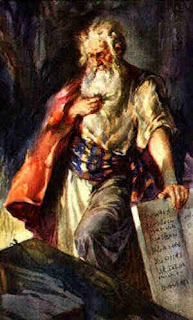After
reading all the historical background of Genesis, I was thinking who wrote
this? It seemed like such a simple question with a simple answer. The Book of
Genesis starts with the creation of the Universe, Earth, water, air, animal,
and finally man. But there is no mention on whom or how this Book can about. I was think of Noah. It just seemed to me that he would have enough on his plate with saving mankind that he would not be gathering up written documents.
I started my search with http://en.wikipedia.org/wiki/Book_of_Genesis, and found that most people believe Moses wrote the Book of Genesis. Most scholars agree that the Pentateuch—which is the first five books of the Bible—was a collection of four sources. These sources are: the Yahwist, the Elohist, the Deuteronomist and the Priestly source. Since the 1970s, the Elohist is now regarded as a variation of the Yahwist.
I started my search with http://en.wikipedia.org/wiki/Book_of_Genesis, and found that most people believe Moses wrote the Book of Genesis. Most scholars agree that the Pentateuch—which is the first five books of the Bible—was a collection of four sources. These sources are: the Yahwist, the Elohist, the Deuteronomist and the Priestly source. Since the 1970s, the Elohist is now regarded as a variation of the Yahwist.
It was very interesting to see that
on this site that they believe that the Yahwist was written in the court of
Solomon. They also know the author of
the Priestly source to be Ezra in the 5th century. Now later thinking is that the Yahwist was
written around the Babylonian Exile of the 6th century. So this theory contradicts the idea of Moses writing the Pentateuch. He would not of been alive during Solomon's rein. So it would of been very hard for him to knock off these books.
They also attempt to explain a
“why” to the Book of Genesis. Their explanation is: a theory which has gained
considerable interest, although still controversial is "Persian imperial
authorization". This proposes that the Persians, after their conquest of
Babylon in 538 BC, agreed to grant Jerusalem a large measure of local
autonomy within the empire, but required the local authorities to produce a
single law code accepted by the entire community. The two powerful groups
making up the community—the priestly families who controlled the Temple and who
traced their foundation-myth to Moses and the wilderness wanderings, and the
major landowning families who made up the "elders" and who traced
their own origins to Abraham, who had "given" them the land—were in
conflict over many issues, and each had its own "history of
origins", but the Persian promise of greatly increased local autonomy for
all provided a powerful incentive to cooperate in producing a single text.[15]

No comments:
Post a Comment